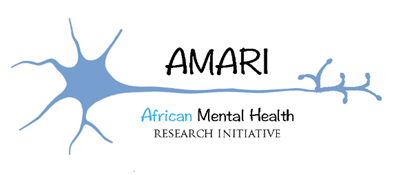Assessing HAND in Zimbabwe
Primrose Nyamayaro, AMARI PhD Fellow
Global trends in HIV indicate that Sub-Saharan Africa has the largest proportion of HIV infections. The region is estimated to account for 71% of all global infections of the virus (UNAIDS, 2016). Zimbabwe is one of the Sub-Saharan African countries that is severely affected by the HIV/AIDS epidemic.
Whilst there have been progressive efforts to curtail HIV through antiretroviral therapy, HIV Associated Neurocognitive Disorders (HAND) remain prevalent especially in advanced HIV infection. HAND occurs when HIV enters the brain and affects several neurocognitive domains – i) attention, ii) memory, iii) learning, iv) motor functioning, v) processing speed, vi) verbal fluency, and vii) executive functioning (Woods, Moore, Weber, & Grant, 2009). These cognitive problems can interfere with a person’s day to day activities, medication adherence, and put individuals at risk for developing more severe cognitive problems.
Although a lot of research has been conducted in high income countries, when we shift focus to Sub-Saharan Africa where ironically HAND is quite prevalent, there is limited research. This discrepancy shows the need to research HAND in Sub-Saharan Africa, specifically- Zimbabwe. In Zimbabwe assessment for HAND in people living with HIV is not conducted.
Upon realising this existing gap in the assessment of HAND in Zimbabwe, African Mental Health Research Initiative (AMARI) PhD fellow Primrose Nyamayaro set out to gain insight into the presentation and prevalence of HAND, validate a screening tool (NeuroScreen) and assess its feasibility and acceptability in people living with HIV who use primary health care clinics in Harare, Zimbabwe. Primrose recruited research participants from two primary care clinics which are Rujeko Polyclinic in Dzivaresekwa and Rutsanana Polyclinic in Glen Norah. These clinics serve local residents from these two high density suburbs.
The NeuroScreen is a smartphone app based cognitive screener that can be used by lay counsellors in the clinics to screen for neurocognitive problems among people living with HIV. Primrose will validate the NeuroScreen, that is, establish evidence on how accurately the NeuroScreen can detect neurocognitive problems so that it can be used in Zimbabwe’s local primary health care clinics. In order to do this participants go through the gold standard assessment for HAND using paper and pencil with tasks that assess the cognitive domains affected by HIV mentioned above. These paper and pencil tasks take on average 2.5 hours to complete and require a trained lay counsellor. Following this, participants do similar tasks but on the newly developed NeuroScreen. The NeuroScreen tasks instructions have been translated to the native Shona language and it take 20 minutes to complete the tasks.
Primrose hopes that the results from her study will be used to incorporate routine screening of HAND into primary care clinics to identify patients that will need further evaluation with the gold standard assessment. Furthermore she hopes that the data from her research will guide the development of interventions for HAND in Zimbabwe.
The African Mental Health Research Initiative (AMARI) is a mental health research capacity building grant funded through the Developing Excellence in Leadership, Training and Science (DELTAS) Africa. DELTAS Africa is a programme of The African Academy of Sciences being implemented with the support of Wellcome and DFID to train and develop world class researchers and research leaders in Africa. At The AAS, DELTAS Africa is implemented through the Alliance for Accelerating Excellence in Science in Africa (AESA), a funding and agenda setting platform of The AAS and the African Union Development Agency (formerly NEPAD).

